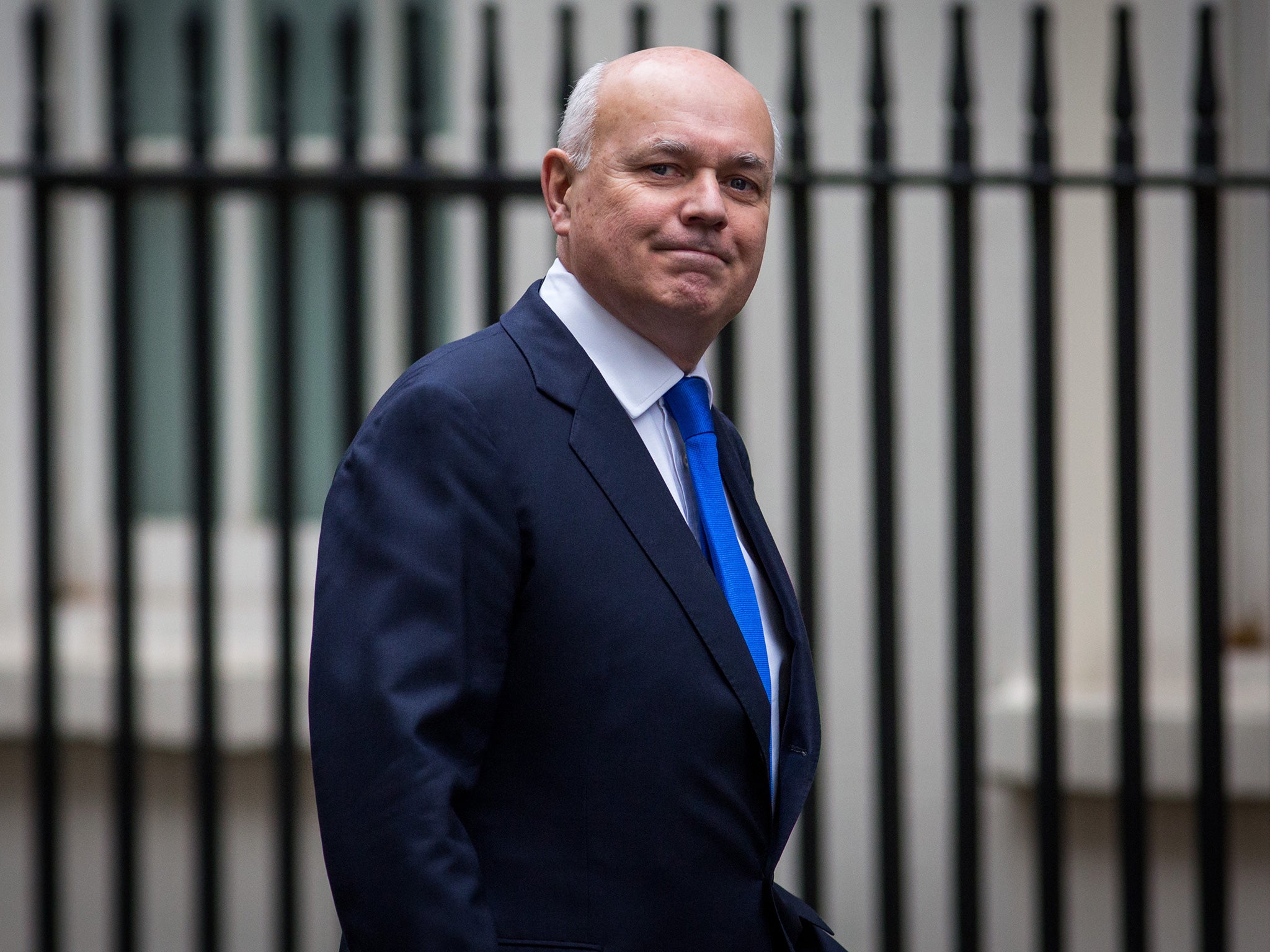The DWP is cutting a disability benefit that already leaves a third of recipients struggling to afford food
Employment and Support Allowance WRAG payments are being cut by £30 a week from April 2017

Your support helps us to tell the story
From reproductive rights to climate change to Big Tech, The Independent is on the ground when the story is developing. Whether it's investigating the financials of Elon Musk's pro-Trump PAC or producing our latest documentary, 'The A Word', which shines a light on the American women fighting for reproductive rights, we know how important it is to parse out the facts from the messaging.
At such a critical moment in US history, we need reporters on the ground. Your donation allows us to keep sending journalists to speak to both sides of the story.
The Independent is trusted by Americans across the entire political spectrum. And unlike many other quality news outlets, we choose not to lock Americans out of our reporting and analysis with paywalls. We believe quality journalism should be available to everyone, paid for by those who can afford it.
Your support makes all the difference.Nearly a third of disabled people reliant on a key sickness benefit say its current low level has left them unable to eat, a survey has found.
The research, which relates to the so-called “Work Related Activity Group” on Employment and Support Allowance, comes ahead of a £30 a week cut to the £102.15 payment which will shrink the incomes of sick people even further.
Researchers at the Disability Benefits Consortium surveyed 500 people in the WRAG found that 28 per cent of people had been unable to afford to eat while in receipt of the the benefit.
38 per cent of respondents said they had been unable to heat their homes and 52 per cent struggled to stay healthy.
People in the benefit group facing the cut are new claimants who the Department for Work and Pensions has deemed to have a limited capacity to work at some point in the future.
The cut will be phased in from April 2017 and will reduce the payment to £73, in line with the current rate of Jobseekers Allowance for non-disabled people.
Some people in receipt of ESA also get Personal Independence Payment or anther benefit but around half do not.
The Government says cutting the disability benefits payments by nearly a third will help incentivise sick and disabled people to find jobs.
However, a new report for disabilities charities by Lord Low of Dalston CBE, Baroness Meacher and Baroness Grey-Thompson DBE found that there was evidence the cut could have the opposite effect.
The report, released on Tuesday, says this is because cuts to payments to people in the employment-seeking group would mean increased resistance to people moving into it in the first place.
Jan Tregelles, chief executive of Mencap, warned that the cut to ESA would not have the Government’s stated intended effect.
“This Parliamentary Review looks at the impact on disabled people of the £30 a week cut to ESA WRAG, something the Government has failed to carry out,” she said.
“This Review shows that the cut would directly hinder the Government’s desire to halve the disability employment gap, and instead push disabled people further away from employment, closer to poverty and actively harm people’s health.”
Paul Farmer, chief executive of Mind, said the assumption behind the cuts were “insulting”.
“Reducing the financial support available to people who cannot work because of illness or disability will make people’s lives even more difficult and will do nothing to help them return to work,” he argued.
“It is insulting and misguided to imply that ill and disabled people on ESA will be more likely to move into work if their benefits are cut. The vast majority of people with mental health problems want to work but face significant barriers as a result of the impact of their condition and the stigma they often face from employers.”
The study was supported by a secretariat of seven charities: Leonard Cheshire Disability, Mind, MS Society, National Autistic Society, RNIB, Royal Mencap Society and Scope.
The Independent contacted the Department for Work and Pensions for comment on this story.
The Department for Work and Pensions claims that the charities' survey is not representative because of the methodology in which the data was collected.
“We value the contributions made by the report’s authors, but do not agree with its conclusions. The fact is that currently someone placed in the Work-Related Activity Group would receive more money every week than a person on Jobseekers Allowance, but get nothing like the help to find suitable employment," a spokesperson said.
“Our reforms will provide up to £100m per year to give people in this group the practical support they need to move closer to the labour market and when they are ready, back into work."
Join our commenting forum
Join thought-provoking conversations, follow other Independent readers and see their replies
Comments